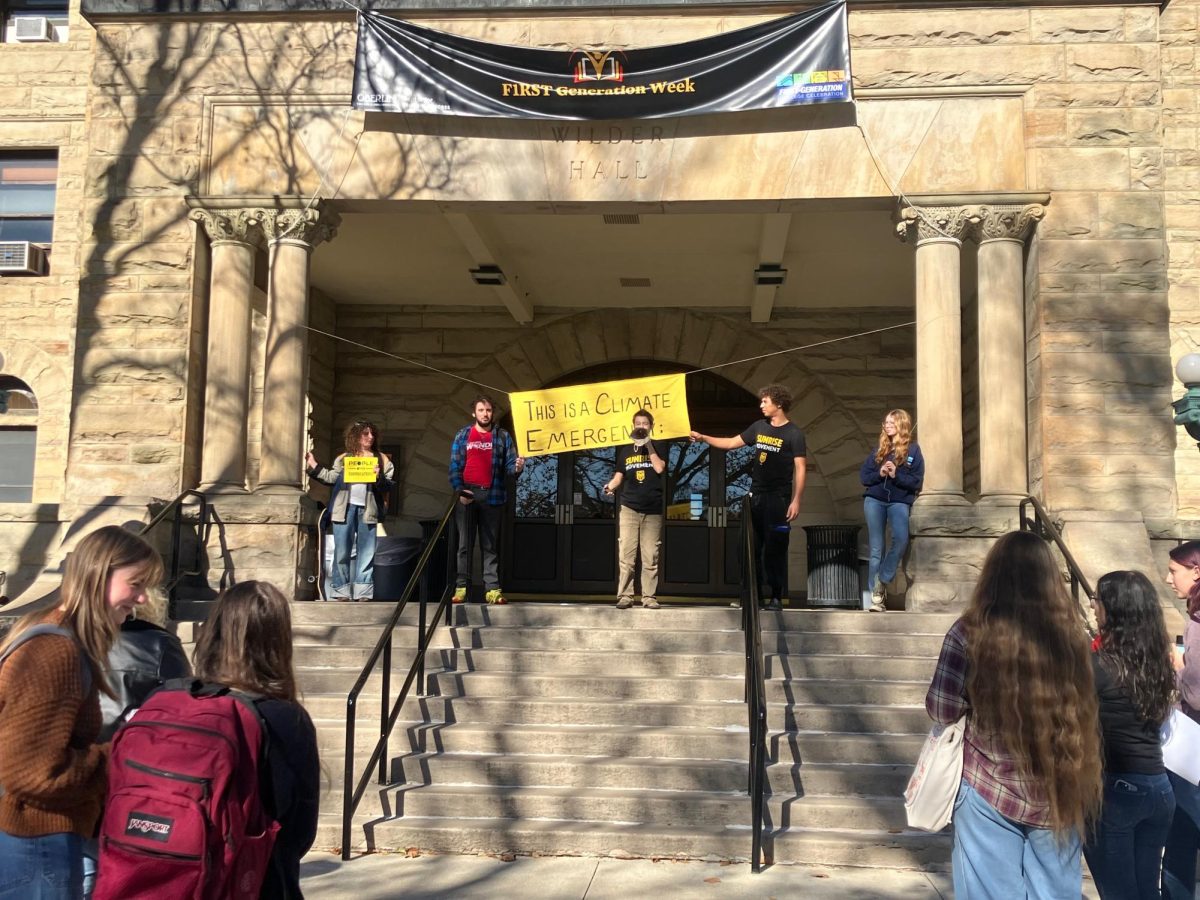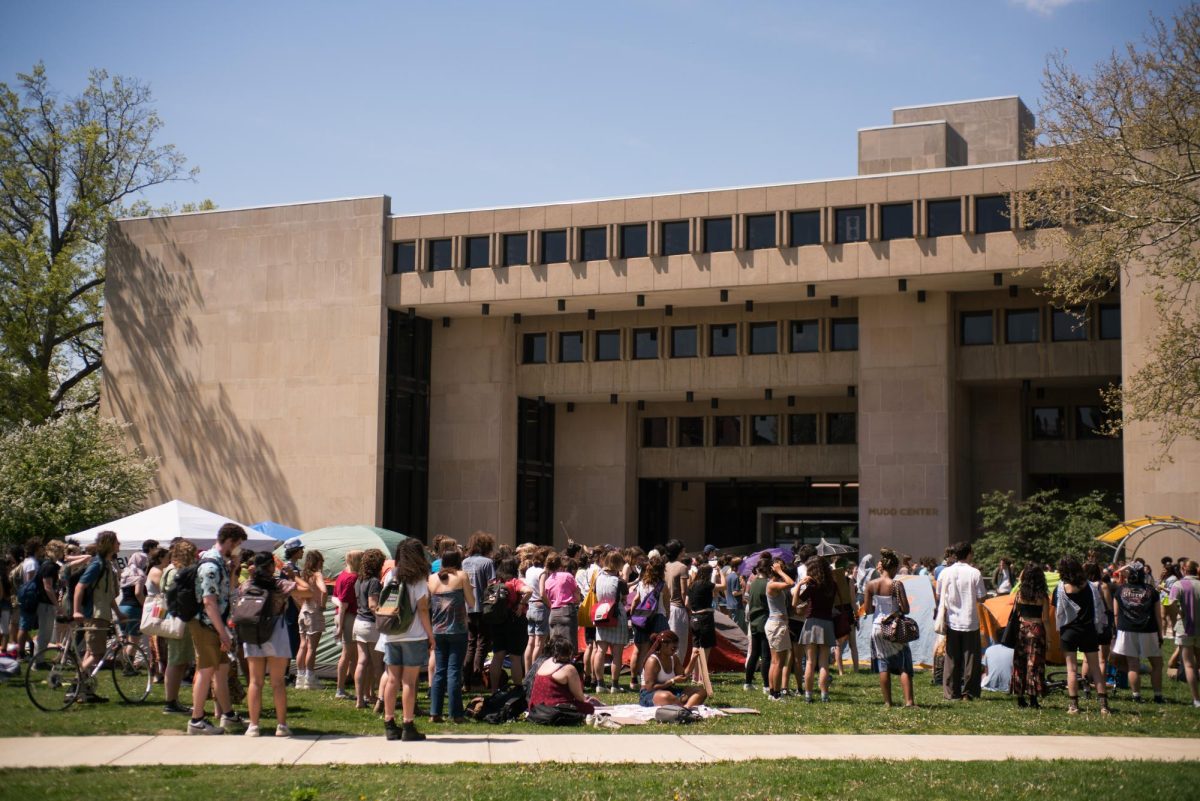On Tuesday, Nov. 5, a record-breaking 78-degree Fahrenheit day in northeast Ohio, the American people elected Donald Trump as the next president with an overwhelming majority. Trump has established himself as a staunch climate denier, claiming it’s a hoax and that global warming is “where the ocean is going to rise one-eighth of an inch over the next 400 years.” Sea levels have already risen almost nine inches since the preindustrial period — circa 1850 — and the highest estimates show a rise of over five feet by 2100.
Under the next four years of Trump and his plans to gut the Environmental Protection Agency, climate justice needs to become everyone’s fight. Every single issue that humanity faces, that Oberlin students fight for, is in some way tied to and exacerbated by climate change. Israel’s war on Palestinian people is a war on Palestinian land, destroying farms and waterways, resulting in an environmental catastrophe. Global instability will rise as wars break out over fresh water and inhabitable land decreases. Immigration issues will be heightened as more and more people across the globe become climate refugees, and healthcare systems will be overwhelmed as environmental health hazards cause chronic illnesses and cancer rates to increase exponentially. Inflation is exacerbated by the destruction of the climate, making groceries more unaffordable and widening an already staggering wealth gap. Homelessness will increase as houses are flooded or caught in wildfires, or are in places no longer liveable due to lack of freshwater.
Many issues will be gravely impacted by another Trump presidency, as he has stated policy plans for everything from undoing protections for abortion rights to imposing tariffs that will cause price hikes. However, these policies can ultimately be undone in four years. The difference with his detrimental climate policies (or lack thereof) are that we are already on borrowed time. The consequences may be permanent.
The Paris Agreement is a legally binding international treaty committed to mitigating and adapting to climate change. 195 nations have signed on, working to lower carbon dioxide emissions to keep the average rise of global temperatures since 1850 (before fossil fuels were widely used and when earliest global data is available) well below 2 degrees Celsius, ideally not rising above 1.5 degrees Celsius. Although seemingly low, every increment of global temperature increase has disastrous effects of floods, extreme weather, loss of biodiversity and more. At the rate that carbon dioxide is released into the atmosphere globally, we will hit 1.5 degrees Celsius of increase in 2030. To stay below 2 degrees Celsius, we must globally be at net zero emissions by 2050.
The U.S. is a top carbon dioxide emitter, second only to China. It is estimated that another Trump presidency could lead to the release of an extra four billion metric tons of carbon dioxide than would otherwise be released if he leaves the Paris Agreement, cuts back environmental regulations, and increases American dependence on fossil fuels and fracking.
Six months into his first term as president, Trump announced the U.S. would be withdrawing from the Paris Agreement, becoming the first nation to do so. During his first term, Trump rolled back 112 environmental policies. He has just announced Republican New York Representative Lee Zeldin to be the head of the EPA. In his announcement, Trump stated that “[Zeldin] will ensure fair and swift deregulatory decisions that will be enacted in a way to unleash the power of American businesses,” while still maintaining the highest quality of air and water. Zeldin has a 14 percent score from the League of Conservation Voters, and has voted against environmental legislation including the Inflation Reduction Act, various clean air and water protections, and the EPA’s safeguards against methane pollution.
Climate change is everyone’s issue, and climate justice is everyone’s fight. It’s a fight that can feel like a losing battle. It can feel hopeless and utterly terrifying, but it’s what’s important, necessary and right. Becoming part of that fight can take many different forms: educating yourself and those around you, having hard conversations, and finding community. It can mean taking more care to understand how climate change will impact your cause or your community and what you can do to adapt. It can mean taking part in park cleanup days and having a more sustainable lifestyle. It can mean getting directly involved with climate organizations.
Climate action may feel pointless at times, like no one’s listening. But there is power in numbers, and even things that seem futile call attention to where we need all hands on deck. Actions such as the Sunrise walkout that occurred the Friday after the election may catch flack for being performative given that it occurred on a campus with an administration committed to reaching net zero emissions and an overwhelming politically left student body. While that isolated action will not have any larger impact on U.S. climate policy, nor did it likely change any minds, the Sunrise meeting following the event saw the largest attendance of any meeting since its establishment on Oberlin’s campus. Actions like these matter. When it comes to climate activism, any publicity is good publicity, and every extra voice matters.
At the end of the day, no matter how much carbon dioxide we pump into the atmosphere, the world will still spin, and Earth will still exist. Humanity will not be so lucky. The time to act is now.







